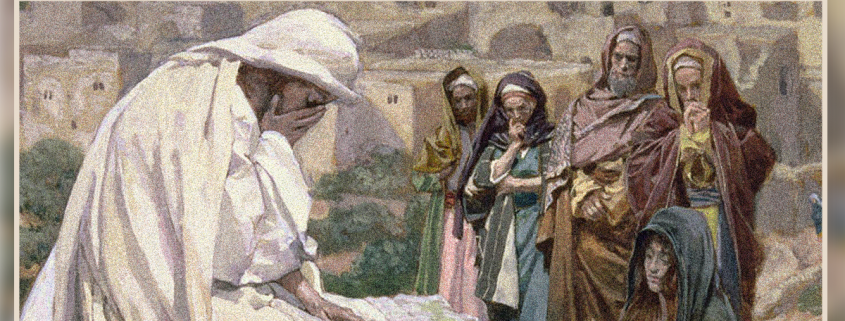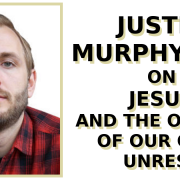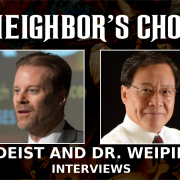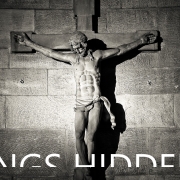Our Christian Duty
I recently came across an article published by an Oxford University journal which made the following claim:
“… The Bhagavad Gita has proven to be an accurate guide for living a fulfilling life—a life aligned with dharma… Krishna’s advice to Arjuna was simple. Being a warrior committed to protecting his people, Arjuna’s only dharma was to fight, and not worry who he was fighting or the outcome of the war. To be able to do what is needed without becoming attached to the result is the way of living a skilful life. To have a goal is not the problem—to become so entangled in the goal where the action is tainted lends itself to suffering… Now, in the midst of a pandemic, the Bhagavad Gita is more relevant than ever—the healthcare worker is Arjuna, hospitals are battlegrounds for the war against the virus and misinformation, the lack of a cure or an effective containment strategy, and a system that has failed us.”
The article is referring to the ancient Hindu mythology that narrates the battle of Kurukshetra. In this battle, the hero Arjuna and his charioteer Krishna, the chief god of Hinduism as per Vaishnavi thought, are faced with an enormous army on the opposite side of the battlefield. But this wasn’t just any army; this was an army made up of Arjuna’s relatives and friends. These were people whom Arjuna had grown to respect, admire, and love. The realization of this fact by Arjuna is made explicit in the following texts:
Arjuna said: O Krsna, seeing these relatives and friends who have assembled here with the intention of fighting, my limbs give way and my mouth becomes completely dry. And there is trembling in my body, and there are cold shivers; the Gandiva (bow) slips from the hand and even the skin burns intensely… I do not see any good (to be derived) from killing my own people in battle… Having said so, Arjuna, with a mind afflicted with sorrow, sat down on the chariot in the midst of the battle, casting aside the bow along with the arrows.
~Chapter 1, Bhagavad Gita
Arjuna’s charioteer Krishna, however, urges Arjuna to ignore his qualms about killing.
The Blessed Lord said: You grieve for those who are not to be grieved for; and you speak words of wisdom! The learned do not grieve for the departed and those who have not departed… These destructible bodies are said to belong to the everlasting, indestructible, indeterminable, embodied One. Therefore, O descendant of Bharata, join the battle… if you will not fight this righteous battle, then, forsaking your own duty and fame, you will incur sin.
~Chapter 2, Bhagavad Gita
Krishna’s reply to Arjuna, to the Calvary-haunted Western audience, will seem odd. What is even more striking is how the mythological narrative is being put forward as a model for emulation in a global pandemic-stricken society.
When one observes closely, an imitation of an impersonal deity, such as the supersoul—the one—revealed by Krishna, leads to an impersonal treatment of family, friends, and neighbors. This Aristotelian concept of the impersonal divine, at first glance, can certainly be touted as an exemplar for unbiased participation in the grand scheme of things; but it falls short of transforming society from that of an accusation-based system to a self-sacrificial community.
Indeed, self-sacrifice is folly in the eyes of a mythological-based society. Mythology is the empowerment of the crowd where individuals are masked in anonymity. Mythology allows for the shunning of responsibility and self-reflection. According to mythology, dharma—the concept of duty—is nothing but a mask of anonymity and the quelling of conscience in a world of pandemics, injustice, suffering, and violence.
Here, I will describe what the mythological dharma looks like in a real-life setting. During my brief stay in a hospital, I saw several doctors and nurses work tirelessly to salvage the many patients miserably warded there. I use the word salvage because the patients were more or less mere objects whose salvation depended solely on their ability to compensate the staff at the hospital.
There was a man—a person in his early thirties—who stayed in that hospital because his mother was admitted with severe head injuries. That man was mostly clueless as to his role in his mother’s treatment and, therefore, depended on the instructions of the nurses and doctors. I remember that the man was initially not able to pay for his mother’s treatment; he was waiting for money to come in. But the chief doctor did not have the same level of patience, so the person was subjected to constant haranguing; the doctor even threatened to have his mother transferred to a cheaper hospital if he didn’t pay up immediately.
Of course, the man came up with the money later; but what remained distinct in my memory is his futile calls for help when his mother suddenly awakened and wanted to use the restroom. The nurses failed to arrive, so the man took his mother by the arm and crudely but surely carried her to a restroom so dirty that the toilet seat was covered with feces. When a nurse did show up she gasped at the sight of the mother defecating in full view of her son. It is, apparently, improper for a mother to be in a compromising situation in front of her son.
The point of this entire narration: what good is dharma if it discards the familial aspect which makes the project of healing desirable in the first place? If one is to arrive at the vocation of healing with an impersonal worldview what guarantee is there that the “healer” will decide not to pull the plug and get it all over with? Wouldn’t this impersonal, indifferent approach betray a lack of interest in the saving of human life altogether as it does in war?
The aesthetic of mythology is a cold one wherein the radiance and diversity of personhood is nowhere to be found. The individual is treated as a spoke on the greater wheel of society and the best of healers, upon seeing the broken spoke, attempts to fix that person as if he or she were a mere object devoid of any thought or will. It is no wonder that much of the world, including those that profess to be Christian, decided to impose nationwide lockdowns in the face of a pandemic which resulted in mental disintegration, unemployment, starvation, closing down of businesses, domestic abuse, and suicide, all for the betterment of society.
It is likely that with all of this in mind, the apostle Paul wrote the following:
… For the creation was subjected to futility, not of its own will but by the will of the one who subjected it, in hope that the creation itself will be set free from its bondage to decay and will obtain the freedom of the glory of the children of God.
~Romans 8: 20-21 (New Revised Standard Version)
Such is the nature of human sacrifice.
In the New Testament, we are faced with a Creator who sees this cold indifference in humanity. Moreover, we see a Creator who listens to our cries due to the cold state of existence institutionalized by our sacrificial authorities and culture. This fact is wonderfully illustrated in the Gospel of John where Jesus, upon hearing of the death of his friend Lazarus, goes to Bethany and there he is confronted by Lazarus’ grieving sisters, Martha and Mary:
… Martha said to Jesus, “Lord, if You had been here, my brother would not have died. But even now I know that whatever You ask of God, God will give You.” Jesus said to her, “Your brother will rise again.” Martha said to Him, “I know that he will rise again in the resurrection at the last day.” Jesus said to her, “I am the resurrection and the life. He who believes in Me, though he may die, he shall live. And whoever lives and believes in Me shall never die. Do you believe this?” She said to Him, “Yes, Lord, I believe that You are the Christ, the Son of God, who is to come into the world.” And when she had said these things, she went her way and secretly called Mary her sister, saying, “The Teacher has come and is calling for you.” As soon as she heard that, she arose quickly and came to Him. Now Jesus had not yet come into the town, but was in the place where Martha met Him. Then the Jews who were with her in the house, and comforting her, when they saw that Mary rose up quickly and went out, followed her, saying, “She is going to the tomb to weep there.” Then, when Mary came where Jesus was, and saw Him, she fell down at His feet, saying to Him, “Lord, if You had been here, my brother would not have died.”
Therefore, when Jesus saw her weeping, and the Jews who came with her weeping, He groaned in the spirit and was troubled. And He said, “Where have you laid him?” They said to Him, “Lord, come and see.”
Jesus wept. Then the Jews said, “See how He loved him!”
~John 11:21-35 (New King James Version)
Feeling, emotion, and affection are often seen in today’s highly dialectical world as negative traits yet they are valid expressions of the divine. Feelings, because of being co-opted by victimist ideologies, are considered irrelevant but they are not evil by their mere existence; they can be windows to that which is beyond rationality.
In Scripture, God has created humanity in His own image and it is for this reason the Creator considers all of us His children. Not only that, Christ, the God-man, leaves His throne and considers us brothers and sisters. In appropriating human nature, Christ shares in our pain and sorrow and delights in our joys as well. Jesus’ affection and love for us is exactly why He chooses to heal the sick and raise the dead. Jesus raises Lazarus from the dead because He sees the grief of Lazarus’ sisters. Jesus raises the widow’s son at Nain because He sees a mother grieving over the loss of her only child (Luke 7:11-17).
In chapter 5 of John’s gospel, why does Christ ask a disabled man this question: “Do you want to be made well?” From those of us claiming to be enlightened, isn’t it obvious that an unwell man has every desire to get well? We may assume that is the case, but Christ is the creator, sustainer, and respecter of personhood. He says: “I stand at the door and knock; if anyone hears My voice and opens the door, I will come in to him and will dine with him, and he with Me.” This may seem like a paradox but it makes perfect sense when we consider that God Himself is a unique person. Though we all share the common nature of humanity, God created each person distinctly separate from the other and proclaims all of us, both sinner and saint, as His image-bearers.
In Christ, dharma is non-existent without love. Duty is shallow if it isn’t accompanied by affection. The apostle Paul writes the following:
If I speak with the tongues of men and of angels, but do not have love, I have become a noisy gong or a clanging cymbal. If I have the gift of prophecy, and know all mysteries and all knowledge; and if I have all faith, so as to remove mountains, but do not have love, I am nothing. And if I give all my possessions to feed the poor, and if I surrender my body to be burned, but do not have love, it profits me nothing.
~1 Corinthians 13:1-3 (New American Standard Bible)
We do not have an indifferent Creator, unaware of what we’re going through. Know that if you have a loved one, bed-ridden beside you from sickness or unjustly locked away in a dungeon, Christ is right there, soothing the tortured whilst bearing the marks of crucifixion.
Jesus’ historical life exists as a model that we can emulate with great effect. At Calvary, He redesigns our faulty concept of duty and changes the way we think about our neighbors. He rewrites mythology and gives real meaning to it. He removes the mask of anonymity and gives everyone the ability to see our neighbors as images of God; and by doing so He shatters the sacrificial framework of our society.
Look not to the impersonal, shadowy figure of the unknown but to the One who reveals Himself in the form of our Brother. The One who lays down His life so that we may have eternal life.









Leave a Reply
Want to join the discussion?Feel free to contribute!